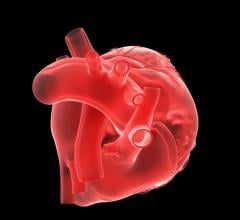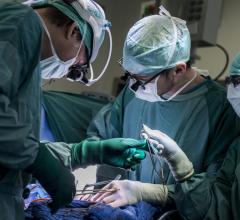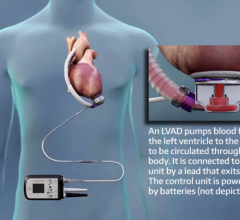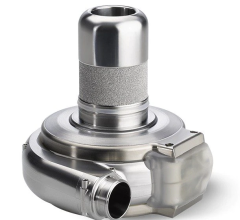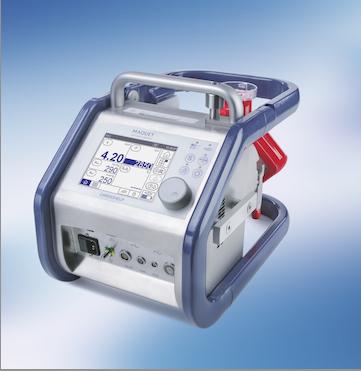
There is a growing trend in the use of small, portable extracorporeal membrane oxygenation (ECMO) systems for hemodynamic support. In years past, ECMO systems were a tool of the operating room, primarily for bypass surgery. Older systems required a perfusionist to watch the machine 24 hours a day while it was in operation. Today’s ECMOs use consoles that are much easier to use and do not require a full-time person to monitor. Also, as the technology has been miniaturized, simplified and now uses a percutaneous access system, ECMOs are being used outside the OR, including the cath lab, when a large amount of support is needed that cannot be provided by IABPs or pVADs.
“These are definitely being put in the cath lab more and will see increasing use in the cath lab in the future — that will become the norm,” said Alan L. Gass, M.D., medical director, heart failure, heart transplantation and mechanical circulatory support, Westchester Heart and Vascular, and associate professor of medicine, New York Medical College.
“We have seen that trend and we are helping drive it,” said Luca Lombardi, M.D., chief medical officer, Maquet Cardiovascular. “The technology has evolved tremendously over the past few years to reduce the trauma to the patient. Just 10 years ago we had to do a full surgical exposure to access the vessels, but today the external diameter of the canula is percutaneous, between 1.2 mm for pediatrics and up to 5 mm for adults.”
Gass has experience with both the Maquet CardioHelp and Thoratec CentriMag extracorporeal circulatory support devices.
The CardioHelp is the world’s smallest circulatory and/or pulmonary support system, weighing just 22 pounds. It can be carried by one person and can be used inside or outside the hospital, including for patient transport. It offers an easy-to-use, touch-screen console interface and plug-and-play setup. Gass said the system offers 3 to 5 lpm of flow, so in patients who need more support than an IABP, he often uses this system as the next step up.
“It’s a great little system with everything you need put into a small package,” Gass said.
His only criticism of the CardioHelp is the inability to see if clots are forming in the oxygenator.
The CentriMag pump is also very small, lightweight and easily transportable. Thoretec says the system can deliver up to 9.9 lpm of flow. The pump has no bearings, but instead uses magnetic levitation, which the vendor says reduced hemolysis (destruction of red blood cells) and the likelihood of mechanical pump failure.


 June 19, 2024
June 19, 2024 
